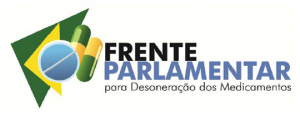ETCO participates in the launch of the Parliamentary Front for Exemption from Medicines

ETCO's Executive President, Roberto Abdenur, will be in Brasilia next Wednesday, April 17, to bring ETCO's support to the launch of the Parliamentary Front for Medication Release.
The following is an article by Federal Deputy Walter Ihoshi, responsible for installing the Front.
Exemption from medication: everyone's gain
By Walter Ihoshi, Federal Deputy (PSD / SP), responsible for the Parliamentary Front for Exemption from Medicines
More than 50% of the Brazilian population cannot afford to pay for the medicines they need. This is shown by a survey recently released by IBGE. This sad statistic could be different if the tax burden on medicines in Brazil was not so high: 33,9% of the final price - one of the highest on the planet, while the world average is 6,3%. In practice, for every R $ 10 paid for a medication in our country, R $ 3,39 is imposed. In other nations, they cost less than R $ 0,65.
The ICMS is the great villain of the pharmaceutical sector. Its rate is, on average, 17%. The exorbitant tax burden weighs on the consumer's pocket, especially on the most humble. And that's not all. Many lives are lost due to lack of medicine. How many stories have we heard of Brazilians who fell ill, were well attended in private hospitals or SUS, but died because they were unable to afford treatment at home?
According to experts, the high price causes the government's requests for the supply of medicines to grow in court. It is estimated that, today, there are 200 thousand processes with this type of request. To give you an idea, data from the IBGE show that the disbursement of class E families in medication is R $ 7 per month. The richest spend R $ 97. In other words, access to medicines depends exclusively on the income of each family.
Facts like these are unacceptable in a country where health is everyone's right guaranteed by the Constitution. The welfare, the reduction of the risk of diseases, the protection and recovery of the health of each individual must be offered by the State. Goods essential to life, such as medicine, should not be taxed. In addition to contributing to quality of life, expanding access to medicines would bring savings to the people and the government. After all, healthy people produce more and better.
In countries like the United Kingdom, Canada, Colombia, Sweden, the United States, Mexico and Venezuela, taxation on drugs is zero. In Brazil, taxes on medicines for human use are three times higher than that for medicines for animal use. Absurd.
To put an end to this situation, I want to take this discussion to the National Congress and civil society. For this reason, on April 17, I will launch in Brasilia the Parliamentary Front for the Exemption of Medicines. We will, through seminars, lectures and political acts, ask the federal and state governments to embrace this cause. If we achieve a gradual reduction in the tax, both the consumer and the government have only a win.



